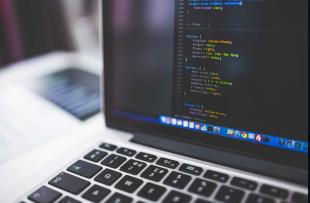
It’s so frustrating to see your laptop running slowly, and you can’t do much about it. But don’t worry. You’ve come to the right place.
Many users have resolved their slowly-running laptop and speed up their laptop with the methods below. So you can try the easy solutions in this article to speed up your laptop.
How to speed up my laptop?
We all know that restarting your laptop does the trick to fix laptop running slow. Apart from restarting, there are more you can do to speed up the computer and enhance the performance. Check it out…
- How to speed up laptop – Limit startup programs
- How to speed up laptop – Clean up your disk
- How to speed up laptop – Scan virus and spyware
- How to speed up laptop – Defragment your hard disk
- How to speed up laptop – Update all available drivers
- How to speed up laptop – Add more memory
Why is my laptop running slow?
One of the most common reasons that the computer is running slow is because programs are running in the background. If your laptop is running for a rather long time, many programs are running in the background, which you may not pay attention to. That’s why we recommend restart your computer regularly to maintain a better laptop performance.
The other causes can be the full hard drive space, the virus infection, hardware conflicts, etc.
Sometimes it’s hard to identify the exact cause to the problem, but there’re still solutions you can try to speed up you laptop.
Fix 1: How to speed up laptop – Limit startup programs
Many programs start up every time you start your laptop/PC, and some of them are not necessary at startup. So your laptop becomes slowly if too many programs are running in startup. But don’t worry. You can disable the programs that don’t need to run when starting laptop. To do so, check it out:
If you’re using Windows 10 & 8 & 8.1
If you’re using Windows 7
If you’re using Windows 10 & 8 & 8.1
If you’re running Windows 10, Windows 8 & 8.1 in your laptop, you can disable the startup programs in Task Manager:
1) On your keyboard, press the Ctrl + Shift + Esc keys at the same time to invoke Task Manager.
2) Click the Startup tab form the top menu, and it shows you all the programs that load at startup.
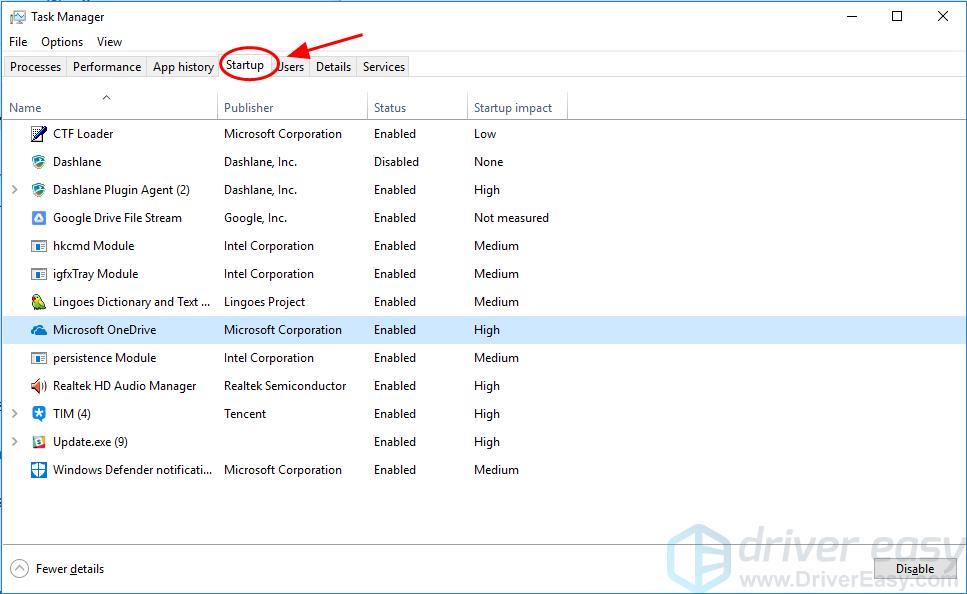
3) Select the program that is unnecessary to run at startup, and click Disable.
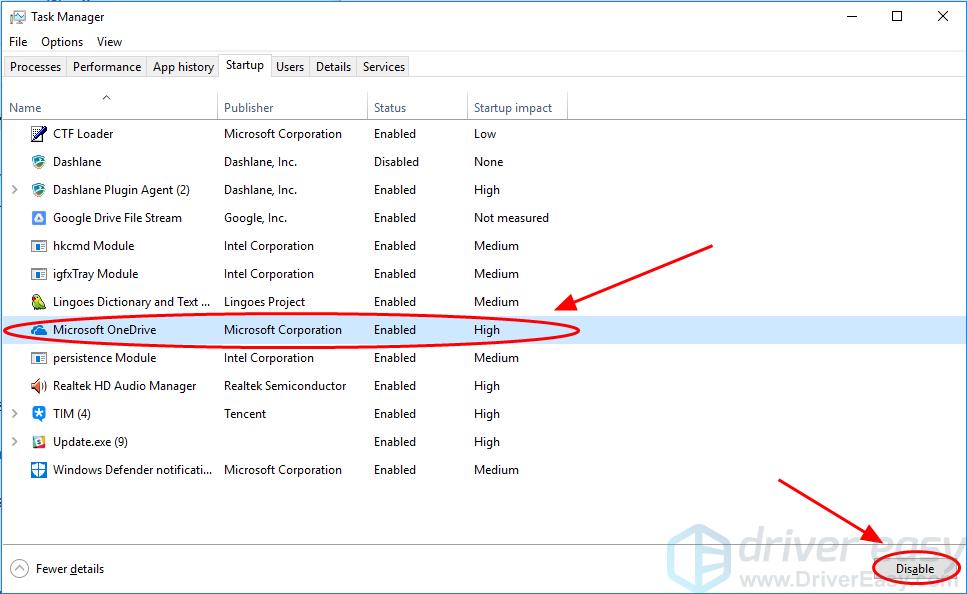
You’ll need to repeat this if there’re several programs.
4) Close the window and restart your laptop to make it take effect.
If you’re using Windows 7
The startup program management is in System Configuration for Windows 7 users, so you can head to MSCONFIG to limit the startup programs.
1) On your keyboard, press the Windows logo key and R at the same time to invoke the Run box.
2) type msconfig and click OK.
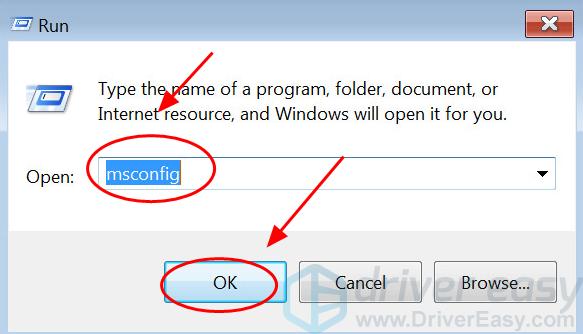
3) Click the Startup tab on the top, and you’ll see the programs that load at startup.
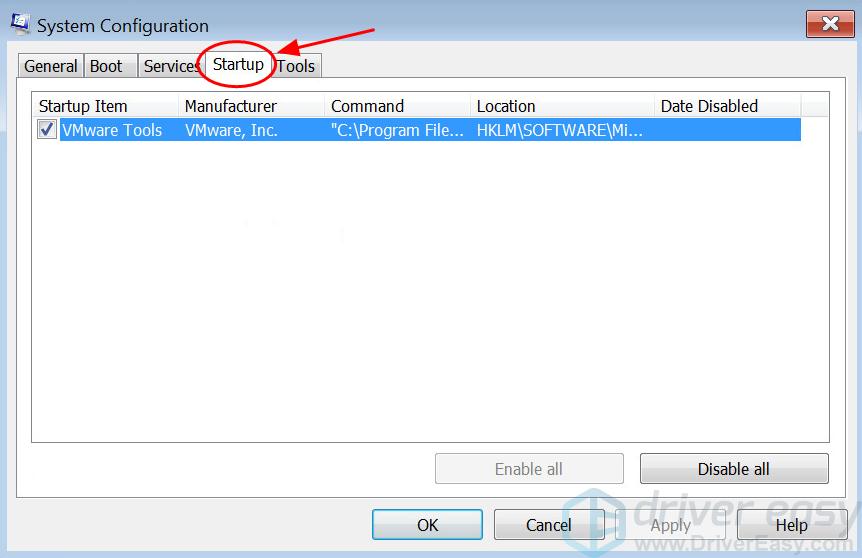
4) Check the box next to the programs that don’t need to run at startup, and click Disable all, then click Apply and OK to save.
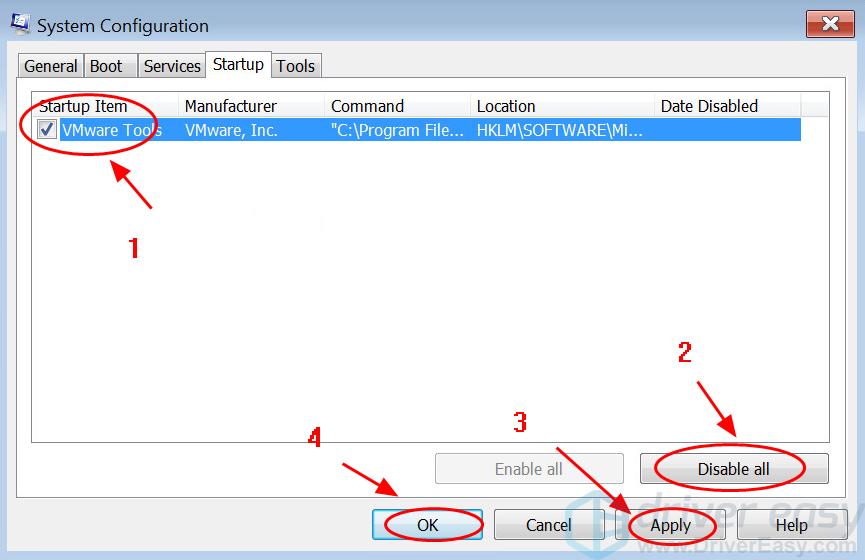
5) Restart your laptop to make it take effect.
Test and see if your laptop runs faster.
Fix 2: How to speed up laptop – Clean up your disk
Too many disk cache can cause your laptop running slow. To rule it out as the cause, you can clean the unwanted junk and files and free up more space by cleaning up your disk. To do so, follow these steps:
1) On your keyboard, press the Windows logo key and R at the same time to invoke the Run box.
2) Type cleanmgr and click OK.
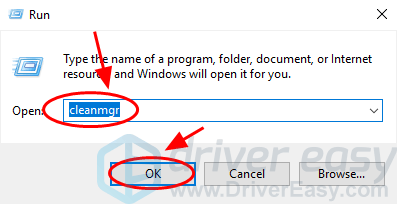
3) Check the box next to the files that you want to clean up, and click Clean up system files.
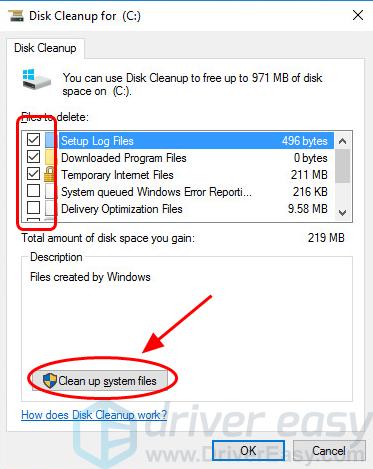
4) Wait for a few minutes to calculate, then click OK and Delete files to confirm.
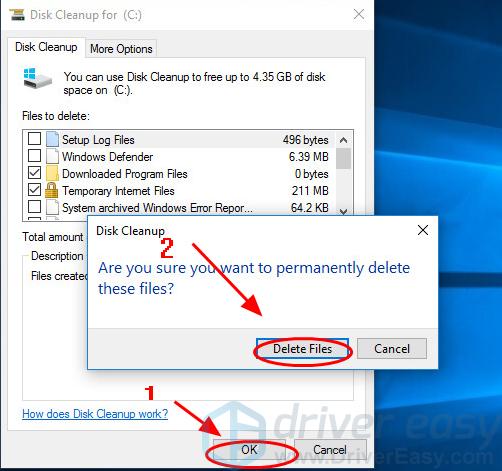
5) Wait for a while to complete and restart your laptop.
Fix 3: How to speed up laptop – Scan virus and spyware
If your laptop is running slowly, it’s likely that it’s infected with a virus or spyware. It’s not common but worthy considering.
You should run a virus scan with your Windows Defender or other antivirus programs, fully check your system and fix any problems that detected.
By the way, it’s recommended to regularly run antivirus programs in your computer by scheduling the detect, in order to keep it up to date.
Fix 4: How to speed up laptop – Defragment your hard disk
Fragmentation makes it harder and more slowly for your hard disk to run the processes, so Disk Defragment is necessary to reorganize the data and make your laptop faster.
1) In the Search box at the Start button, type defrag, and click Defragment and Optimize Drives.
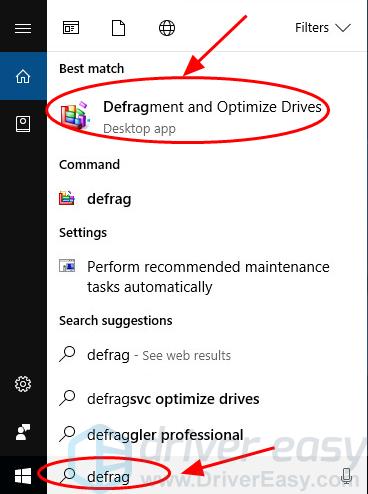
2) Select a drive, and click Analyze (or Analyze disk), then it will start analyzing the fragmentation. (You can’t click Analyze or Analyze disk if you have installed SSD, then you can skip this step.)
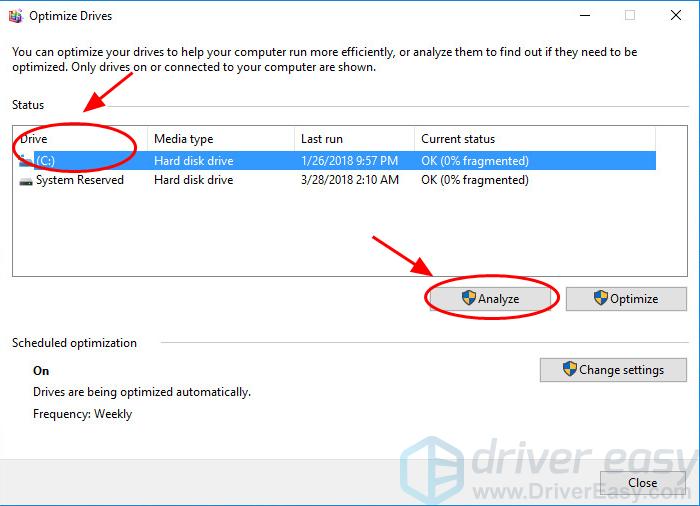
3) After analysis completed, click Optimize (or Defragment disk), and wait for a few minutes to finish.
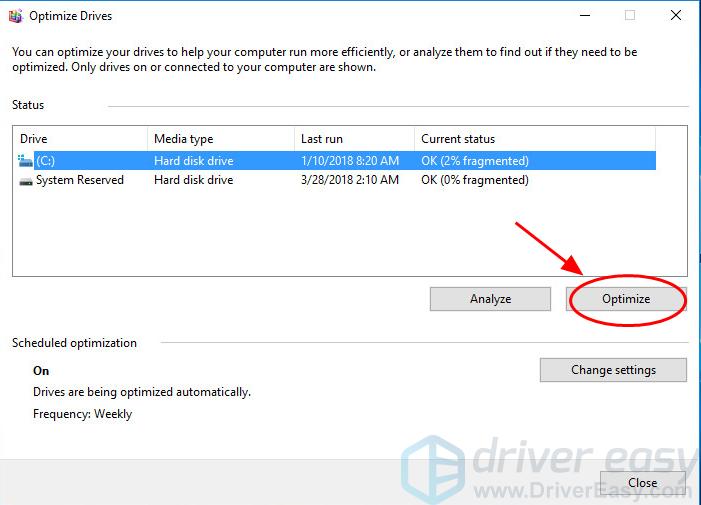
4) Close the window and restart your laptop.
Fix 5: How to speed up laptop – Update all available drivers
The missing or outdated drivers can cause the slow performance in your laptop, because the hardware can’t communicate properly with the software. So you should verify that all the drivers in your laptop are up to date, and update those that aren’t.
There are two ways to update drivers: manually and automatically.
Manually update drivers – You can manually update the driver by searching the correct driver that is matched with your Windows OS on the manufacturer’s website, and install it in your computer. This requires the time and computer skills.
Automatically update drivers – If you don’t have time or patience to manually update drivers, you can do that automatically with Driver Easy.
Driver Easy will automatically recognizes your system after scanning, then find and install automatically the latest drivers for you, which saves your time and enhances your Windows performance. You can also schedule a regular scan and update for your computers with Driver Easy.
1) Download and install Driver Easy.
2) Run Driver Easy and click Scan Now. Driver Easy will then scan your computer and detect any problem drivers.
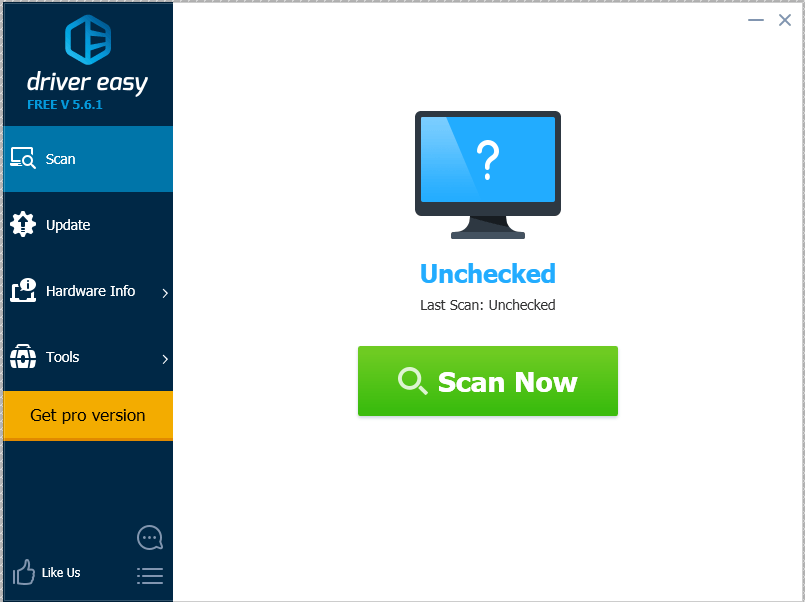
3) Click the Update button next to a flagged audio driver to automatically download and install the latest driver (you can do this with the FREE version).
Or click Update All to automatically download and install the all the latest correct drivers that is missing or outdated in your system (This requires the Pro version. You will be prompted to upgrade when you click Update All).
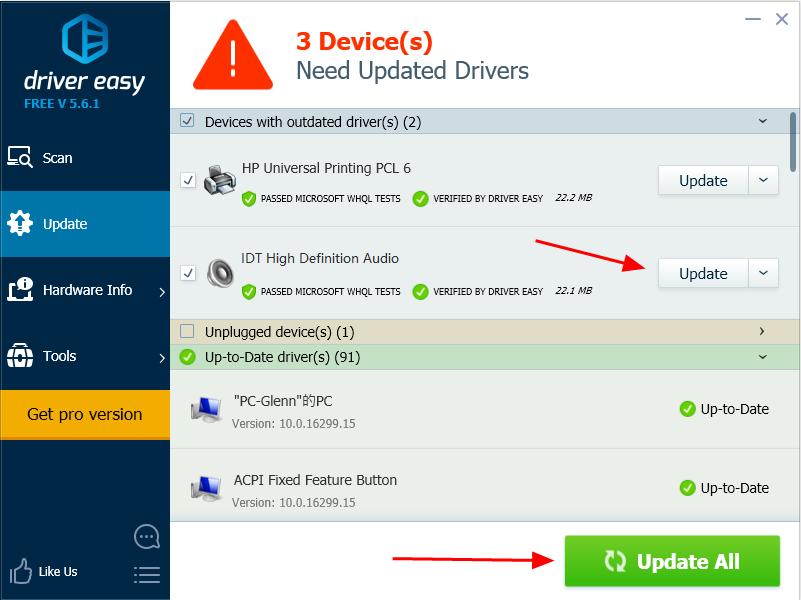
4) Restart your computer.
Then see if your laptop running slow issue has been fixed.
Fix 6: How to speed up laptop – Add more memory
If your laptop is running too slowly, it’s usually because your laptop doesn’t have enough RAM, and the best way to speed it up is to add more RAM to your laptop.
If you’re confident with your computer skills, you can buy RAM for your laptop on the Internet, and add it to your laptop with the RAM manual.
So there you have it – the best solutions to speed up your laptop and boost your Windows. Feel free to leave a comment below to share your thoughts or experiences.





